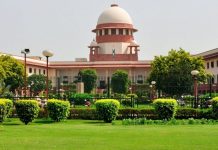This article has been written by Sushant Biswakarma, a student from Symbiosis Law School, Noida. It talks about the condonation of delay on the grounds of sufficient cause under the Limitation Act, 1963.
Table of Contents
Introduction
The term limitation for the purpose of this article refers to the limitation of time that has been prescribed by law for the people within which they must approach the Court.
Any suit, appeal or application must be filed within the period prescribed by The Limitation Act, 1963. The limitation of time is created in order to prevent delaying justice.
It often happens that people approach the Court after the prescribed period of limitation, Section 5 of the Act provides the remedy in such situations.
This provision talks about the condonation of delay, which we shall be discussing in detail in this article.
Law of limitation
The Law of Limitation is a part of procedural law, giving it the status of adjective law. It is applicable to both parties in a case and does not favour one over the other.
The procedural laws in India empower us with the right to file an appeal against a decree, however, they remain silent on the time limit within which one can file such appeal.
Can an appeal be filed whenever a person feels like? Could it be filed 2-3 years after the decree has been passed?
To answer this question regarding the period of limitation, we need to look at the Limitation Act. The Act in its Section 30 states that an appeal or application must be filed within 90 days. The period of 90 days commences from the day the decree has been passed.
If a person receives a decree and does not file an appeal within 90 days, he is deemed to have been satisfied by the decree and accepted it. If someone is unhappy with the decree they were awarded, the 90 days window is all they get.
This provision makes sense, because, if the decree is not satisfactory enough then 90 days is a long enough time to realise that and file an appeal against the same. Without a period of limitation, people could be realising a fault in their decree after decades have passed and appealing against it.
If that was the case then it would show how careless the appellant was regarding their rights and would simply waste the precious time of the court.

Condonation of Delay
Condonation of delay refers to the extension of the statutorily prescribed time limit in certain situations. Section 5 of the Limitation Act provides for condonation of delay. The discretion to condone a delay is totally upon the discretion of the Court.
Section 3A
An amendment was made to the Limitation Act in 1976 wherein Section 3A was inserted to the Act. It states that if an appeal is filed after the prescribed period of limitation, it must be filed along with an application for condonation of delay which shows sufficient cause for the appellant, for not filing the appeal on time.
It is totally upon the discretion of the Court to accept or reject the application for condonation of delay. With the lack of any proper definition, sufficient cause can be interpreted differently by every court.
The object of Section 3A of the Limitation Act
The objective behind this provision was observed by the Apex Court in the case of M.P. v. Pradeep Kumar. The court stated that the object of this Section is two-fold:
- To inform the appellant that the appeal filed beyond the prescribed period of limitation will not be entertained by the Court.
- To inform the respondent that they do not need to be prepared on the merits of the case as the court shall first deal with the application for condonation of delay.
However, the Court held that the provision is merely directory in nature and not mandatory. If an appeal has been filed without the application for condonation of delay, the consequence shall not be very harsh and it may also be accepted.
What is “sufficient cause”?
The doctrine of “Sufficient Cause” for time extension is the same as the condonation of delay. In order to seek condonation of delay, one must show the “sufficient cause” of delay. We have already seen the general rule, which is to approach the court within the prescribed period of limitation.
However, there can be some exceptions to this general rule and an application or appeal can be admitted by the Court even after the period of limitation by condoning the delay.
In order to seek condonation of delay, a party must satisfy the court that they had been obstructed by some sufficient cause from filing the application or appeal within the prescribed time frame.
There is no per se definition of the term ‘sufficient cause’ in the limitation act, giving it a much wider scope of interpretation.
In the case of Municipal Corporation of Ahmedabad v. Voltas Ltd, the High Court of Gujarat opined that sufficient cause must be interpreted liberally to ensure substantial justice to the parties.
The interpretation should be able to ensure that no injustice is done to the judgement debtor by depriving him of his right to appeal on the basis of some circumstances that were out of his control. However, the cause has to be reasonable and bona fide.
The Court stated that sufficient cause could differ from case to case and providing a definition to such wide doctrine would limit its scope.
Also, in the case of Balwant Singh v. Jagdish Singh, the Court held that a party seeking condonation of delay must show that they were acting bona fide and had taken all possible measures within their power and control and did not approach the court with any unnecessary delay.
Further, in the case of Collector Land Acquisition v. Mst. Katiji & ors, the Supreme Court held that:
“The term ‘sufficient cause’ in the provision is reasonably flexible, allowing courts to apply the law in a meaningful manner. This allows the Courts to serve justice, which was why they were formed. However, the Courts lower in the hierarchy seem to not be exercising this power much.”
Upon reading the judgements, we can infer that sufficient cause must be some situation that is beyond our control. There can not be any one-and-proper definition of ‘sufficient cause’ as the Courts have complete liberty to decide whether the cause is sufficient or not. It may differ from case to case.
Mistake by the counsel, mistake of law, illness of the party, death of the party’s family members, global pandemic, death of the counsel, etc, could be some instances of sufficient cause. Ignorance of law and carelessness can never be sufficient cause.
Section 5 of the Act makes it clear that to grant condonation for the delay is totally upon the discretion of the Court, and the burden to prove sufficient cause lies upon the party claiming such condonation.
General principles regarding condonation of delay
The Supreme Court in the case of Collector Land Acquisition v. Mst. Katiji & ors, has laid down some guiding principles which the Courts must follow while dealing with the issue of condonation of delay. They are as follows:
- The Court must ensure that the party has not filed the appeal late, to somehow benefit from late filing. There must be no vested interest in the late filing.
- Merits of the matter are to be heard only if the Court is satisfied by the sufficient cause and the delay has been condoned. On the refusal of condonation of delay, the appeal stands rejected.
- The Court doesn’t need to take a pedantic approach and examine every detail. That will merely cost more of the Court’s and party’s time. However, the decision must be in a pragmatic and rational manner.
- If the situation arises wherein the Court has to choose between the technical considerations and substantial justice. The latter should be chosen, no injustice should be done for a bona fide mistake.
- The Court should not presume that the delay in filing was deliberate. It must keep an open mind and consider all the reasons for the delay before deciding.
If the appellant does not come with reasonable cause that could be enough to condone the delay, then he is not entitled to be entertained by the Court. The Courts should in no situation, condone the delay of a person who provides false reasons to set aside the bar or limitation.
On doing so, the Courts will merely be setting a bad precedent. Liberal interpretation does not mean ignorance of public policy upon which the law of limitation is based. That might defeat the entire purpose and intention behind the law of limitation.
Sufficient cause for non-appearance of the parties
Parties may sometimes not be able to appear before the Court on the date fixed for hearing. The sufficient cause for the purpose of non-appearance of a party refers only to the date on which the party did not appear and an ex-parte decree was passed.
It is obvious that the circumstances beyond one’s control such as late arrival of a train, cancellation of flight, meeting with an accident, etc. can be accepted as sufficient cause.
But, the Court has exercised its discretionary power and further widened the ambit of sufficient cause. In the case of Sohanlal Ruia v. Kedarnath Purushottamdas, wherein the Court held that city curfew could be a sufficient cause.
Many people were not able to appear before the Court in the initial days of the Coronavirus outbreak, but the Courts were still operational. Such non-appearances were made on a valid and reasonable ground, therefore, constituting a sufficient cause.
In the case of Mahabir Chandra Gelada v. Sohanlal Boid, the court held that the counsel being briefed elsewhere or counsel being busy in some other court can not always be entertained, as it can not be considered to be a sufficient cause.
However, a mistake in noting the date fixed for the hearing can also be considered as a sufficient cause, provided that the party had no mala fide intentions, or was trying to delay the proceedings.
Upon reading the above decisions, we can conclude that the discretionary power is exercised very liberally by the Court, and tries to entertain as many appeals as possible in order to serve justice. The only reasons that are very unreasonable are rejected.
Sufficient cause in the stay of execution of a decree
A decree holder (on whose favour the decree has been passed) obtains certain rights when the decree has been passed. A judgement debtor can file an appeal if he is not satisfied with the decree, but mere filing of the appeal does not mean that the decree gets stayed.
In the case of Mulraj v. Murti Raghunathji, the Court held that the decree-holder still has the right to execute his decree even after an appeal has been filed by the opposite party. The execution of decree can stay if the Appellate Court is satisfied that there is sufficient cause and order for the same.
Sufficient cause in an application for adjournment
The doctrine of sufficient cause must be interpreted liberally, but while granting adjournments, the Court is mandated not to do so as it is against the public policy. The same was held in the case of Abdul Hannan v. Chandra Sekhar Patra.
Sufficient cause for adjournment will depend upon the facts and circumstances of the case, the interpretation should be just, reasonable and not lenient.
In the case of Surendra Kumar v. Rajendra Kumar Agarwal, adjournment can be granted if the party seeking it is ready to pay reasonable costs, including exemplary costs, when an adjournment is sought multiple times, to cause loss or harm the opposite party.
In the case of Dhanraj Lilram Motwani v. Rajendra Kumar Dayachand Jain, it was held that the adjournment should not be granted unless the Court is satisfied that the party applying for adjournment could not have gotten another pleader in time.
Conclusion
In interpreting the term ‘sufficient cause’ the Courts have been very lenient and have often condoned every delay having even barely reasonable cause.
The judgement debtor has been slightly favoured by the Courts while accepting many appeals filed after the period of limitation.
The interpretation must be made liberally, keeping a balance and trying not to favour one side, but the Courts have set some bad precedents by doing exactly the opposite.
The Courts have been given too much liberty in interpreting the meaning of sufficient cause, which results in uncertainty and differences in interpretation between the Courts.
The Supreme Court must provide proper guidelines relying on which the interpretation should be made. It is necessary as the bad trends and precedents being set need to be stopped.
LawSikho has created a telegram group for exchanging legal knowledge, referrals and various opportunities. You can click on this link and join:
 Serato DJ Crack 2025Serato DJ PRO Crack
Serato DJ Crack 2025Serato DJ PRO Crack










 Allow notifications
Allow notifications


